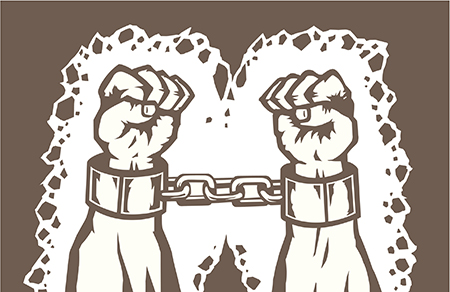 Dr Alex Balch is a is a member of the Centre for the Study of International Slavery (CSIS), a partnership between the University of Liverpool and National Museums Liverpool. Dr Balch is also a member of the Forced Labour Monitoring Group
Dr Alex Balch is a is a member of the Centre for the Study of International Slavery (CSIS), a partnership between the University of Liverpool and National Museums Liverpool. Dr Balch is also a member of the Forced Labour Monitoring Group
“There is a well-known debate within the study of politics and international relations that pops up time and again: can the powerful ever really act on ethical principle and without regard for their interests?
“A favourite example, and one which has spawned a particularly fertile academic debate (and – students take note – often crops up as an essay question), is Britain and the abolition of the slave trade in the early 19th century. Surely here was a glorious example of ethics over interests? A case of British moral leadership in choosing what was right and good over that which served imperial power and profit?
Ethical foreign policy?
“Rather than spoiling what is a fascinating subject with a glib response to those questions, safe to say that with closer analysis (plus the benefits of hindsight) there is certainly scope for those sceptical of an ‘ethical foreign policy’ to put forward a case.
“So what about the Modern Slavery Bill announced in yesterday’s Queen’s speech? How will the tension between ethics and interests play out as this new law passes through parliament?
“The timing of the Bill is very interesting. The sudden revival of political interest in enacting new legislation on slavery certainly came as a surprise to some, especially considering this government’s refusal to sign up to important international agreements to combat forced labour.
“In the end, as is always the case, the parliamentary process will feature a mixture of political interests and pressure from those lobbying for what they feel is the best possible law. On the positive side there is a broad consensus in the wider policy community that there must be improvements.
“The Parliamentary joint select committee has demanded changes to the draft bill on the basis of the majority of those giving evidence criticising it for being too focused on criminal justice, with not enough for victims. There will clearly be problems ahead if it remains similar to the previous draft version, and the shortened parliamentary session will mean little time for significant amendments.
Opportunity missed?
“In political terms, considering her personal championing of the Bill, a successful passage could rest on Home Secretary Theresa May’s resolve to push it through. It will be an interesting test of her power within the Conservative Party, but also of the price willing to be paid for this show of strength.
“For many of the people and organisations working to help victims of trafficking, forced labour or domestic servitude and to stop those perpetrating these crimes, there are serious concerns that the Bill will be an opportunity missed.
“Instead of improving the UK’s response, there are fears that the chance for a high quality piece of legislation will be sacrificed at the altar of political interests in pushing something through quickly.
